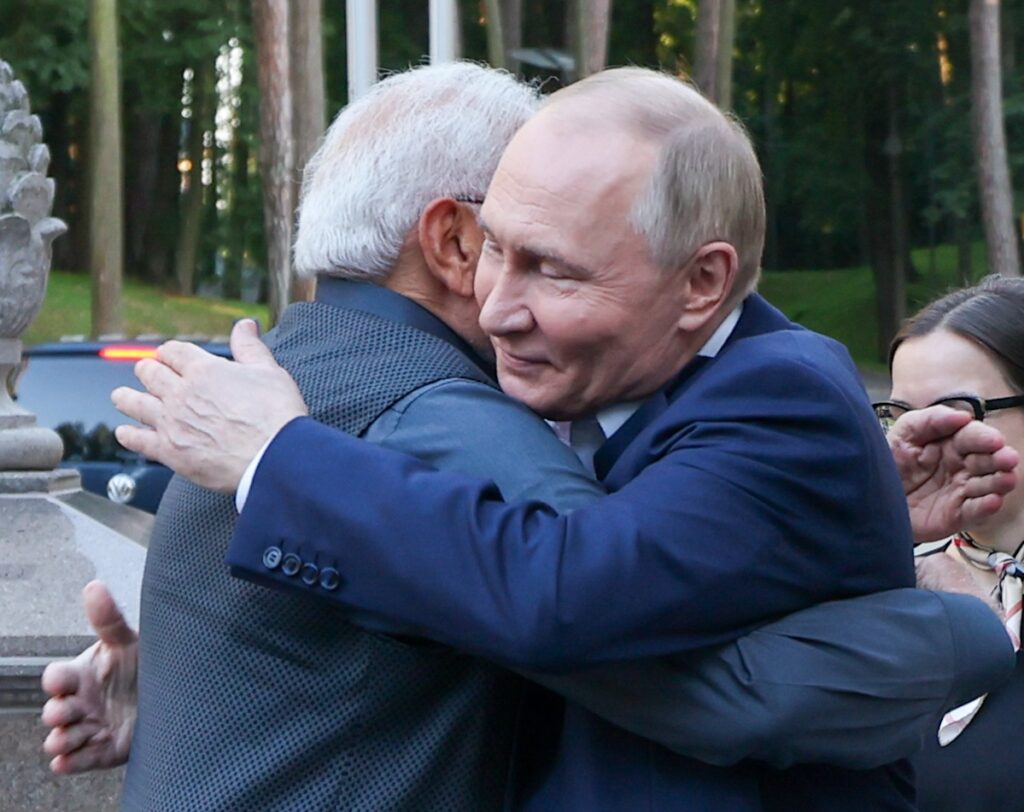ISW: Russia relies on India, Serbia, China to evade sanctions
A leak reveals Russia's plan to spend $1 billion on critical electronics, potentially leveraging Indian facilities. Meanwhile, at the Eastern Economic Forum, Putin meets with Serbian and Chinese officials to discuss trade and cooperation.


According to a report by the Institute for the Study of War (ISW) on 4 September, Russia appears to be relying on several countries, including India, Serbia, and the People’s Republic of China (PRC), in its efforts to evade Western sanctions.
The Financial Times (FT) reported, citing leaks from Russian state correspondence, that Russia’s Industry and Trade Ministry had devised a plan in October 2022 to spend nearly $1 billion on securing critical electronic components. This plan reportedly included the possibility of building facilities in India to gain access to such components.
The FT report revealed that Russia has been covertly acquiring sensitive dual-use electronics from India, using “significant reserves” of Indian rupees amassed by Russian banks from increasing oil sales to India. However, the extent to which Russia has implemented this plan remains unclear.
On 4 September 2024, Russian President Vladimir Putin met with Serbian Deputy Prime Minister Aleksandar Vulin on the sidelines of the Eastern Economic Forum (EEF) in Vladivostok, Primorsky Krai. The leaders discussed the removal of bilateral trade barriers to reverse declining trade levels. Vulin stated that Serbia will not impose sanctions on Russia and will not allow its territory to be used for “anti-Russian” actions.
Putin also met with PRC Vice President Han Zheng on the same day, emphasizing that the EEF serves as a valuable platform for enhancing mutual understanding and fostering Russia–PRC economic cooperation. Kremlin Spokesperson Dmitry Peskov stated on 3 September 2024 that Putin had briefed PRC officials about the outcomes of his recent trip to Mongolia, during which he emphasized growing regional trade and cooperation with the PRC and Mongolia.
ISW says it has previously observed indications that “foreign companies and banks, including in the PRC, have been increasingly reluctant to conduct transactions with Russian actors due to fears of Western secondary sanctions, which could be affecting Russia’s sanctions evasion efforts.”
Related:
- Ukraine urges Hong Kong not to help Russia evade sanctions
- How EU firms funnel electronics to Russia’s war machine via an obscure Turkish firm
- Indian PM Modi urges peaceful resolution of war in Ukraine during his “historic” visit to Kyiv
- Serbia won’t ban ammo sales to third countries supplying Ukraine, PM Vučević says
- Belarus, China agree to strengthen cooperation in trade and security
- How Ukraine’s Lukoil ban threatens Hungary’s cheap Russian oil lifeline
- Sanctions against Russia work and need to be increased, EU finance ministers say
You could close this page. Or you could join our community and help us produce more materials like this.
We keep our reporting open and accessible to everyone because we believe in the power of free information. This is why our small, cost-effective team depends on the support of readers like you to bring deliver timely news, quality analysis, and on-the-ground reports about Russia's war against Ukraine and Ukraine's struggle to build a democratic society.
A little bit goes a long way: for as little as the cost of one cup of coffee a month, you can help build bridges between Ukraine and the rest of the world, plus become a co-creator and vote for topics we should cover next. Become a patron or see other ways to support.



